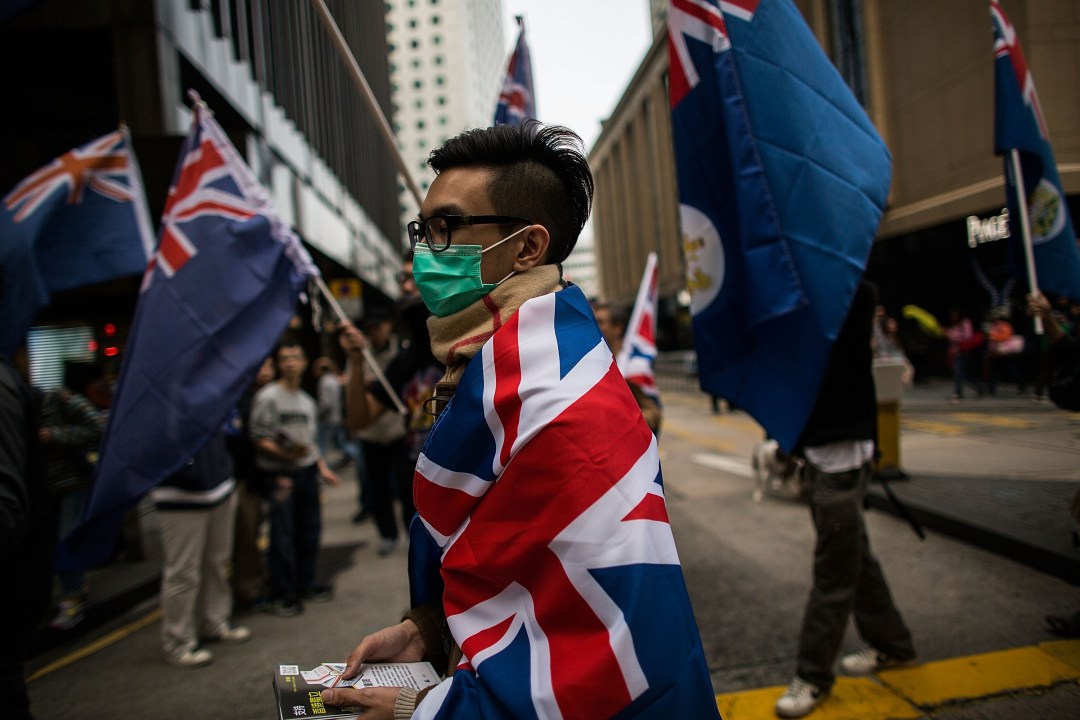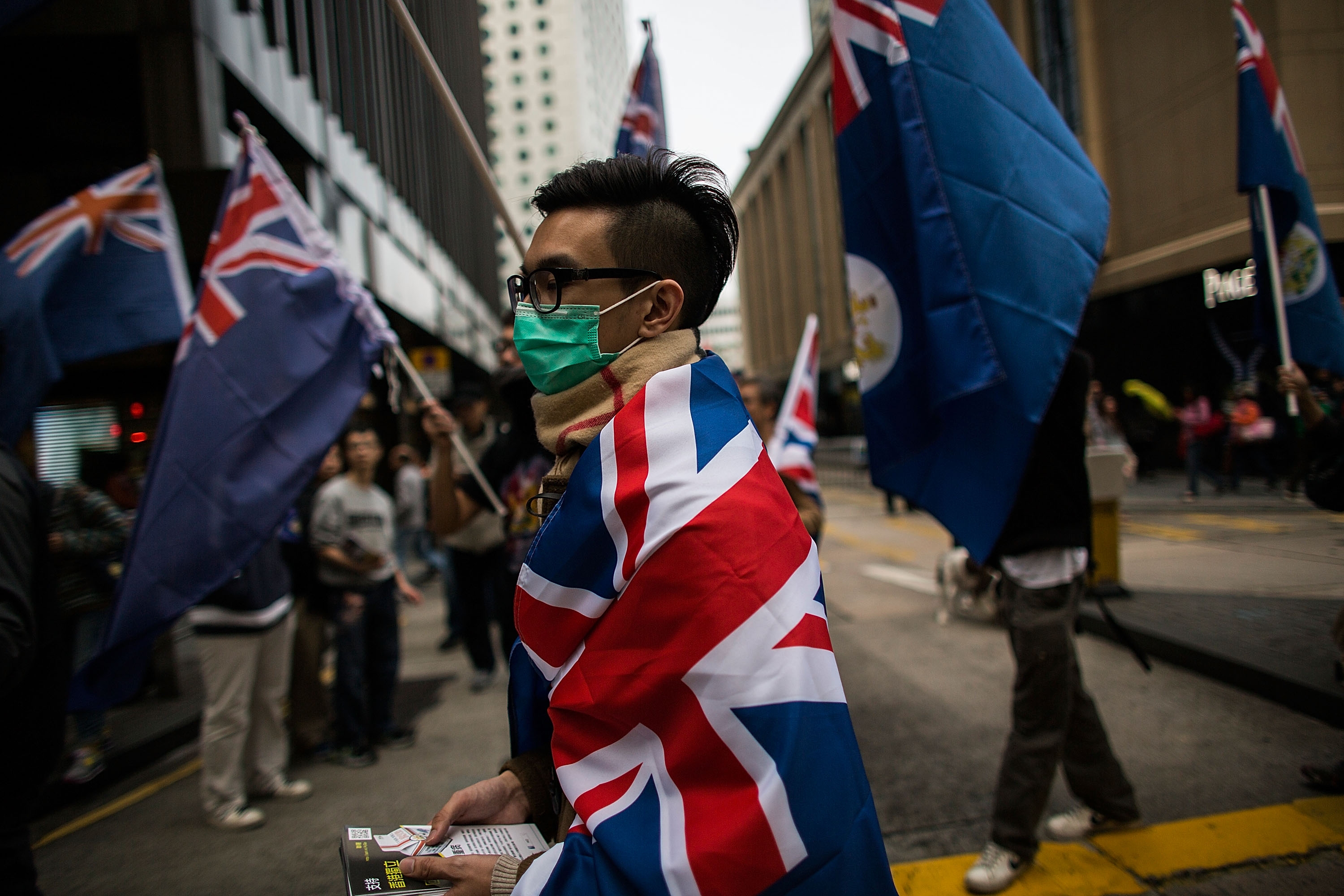Almost across the political spectrum, people appear to have decided that it is a very good thing that the government may offer Hong Kong citizens with British Nationals Overseas (BNO) status the chance to come and live in the UK permanently.
With China having passed draconian security legislation that runs against democratic norms, Home Secretary Priti Patel and Foreign Secretary Dominic Raab have made clear that Britain’s doors will be opening to those Hong Kongers with BNO status who would like to move here. As Ms Patel said:
If China imposes this law, we will explore options to allow British Nationals Overseas to apply for leave to stay in the UK, including a path to citizenship.
Mr Raab has also added:
If China continues down this path and implements this national security legislation, we will… allow those BNO passport holders to come to the UK and to apply to work and study for extendable periods of 12 months and that will itself provide a pathway to future citizenship.
The ministers made clear that the offer will apply not only to the estimated 300,000 Hong Kong citizens who already have BNO passports but also to the nearly three million more who have the right to that status on account of being born before the 1997 handover to China.
What we are seeing is not some virtuous consensus emerge so much as yet another outbreak of luxury liberalism
As Professor Matthew Goodwin, who is more normally found telling home truths that annoy the knee-jerk left, put it:
Very proud of our country today – extending visa rights to 3 million Hong Kong residents whose freedom is being curtailed by totalitarianism.
For Labour, the shadow foreign secretary Lisa Nandy branded the announcement ‘an important first step in fulfilling our longstanding obligation to the people of Hong Kong’ (implying that Labour would go even further).
Well, somebody needs to put a spoke in the wheel of all this, so it might as well be me. What we are seeing is not some virtuous consensus emerge so much as yet another outbreak of luxury liberalism sweeping across the commanding heights of the British political scene.
Yes, there is a historic connection and arguably a responsibility for Britain to look out for the people of Hong Kong. But, no, that does not mean that giving three million people the right to live here is automatically the correct thing to do.
It would be lovely were the UK a country with sufficient spare housing stock, unused public services and transport capacity to allow it to make such an offer to such a huge number of people without risking significant harms to large groups of existing citizens. But it simply isn’t.
England, where 90 per cent of migrants to UK shores settle, is the most densely populated major country in Europe with necessarily strict planning laws. South East England and London, to where two in every five new migrants gravitate, have population densities that are nearly off the scale.
The shortage of housing has become a major political issue, so has population-based pressure on public services and so has the impact of oversupply of foreign labour on working-class employment prospects and wages.
Yet such was the intensity of the group hug that followed the government’s announcement that nobody from any political party appeared to press Ms Patel or Mr Rabb to publish their coherent and detailed plans for the flexing up of the housing stock and wider infrastructure to cope with a possible mass influx from Hong Kong. That was a stroke of luck for them because they don’t have any.
And don’t tell me that we can be sure a big influx of people will not occur, because you will remind me of what Tony Blair’s administration said about opening up the UK to people from the A8 EU accession countries of Eastern Europe 15 years ago. Estimates for the inflow was set in advance at 5,000 to 13,000. In the event, over half a million people pitched up over five years in a mass migratory wave that caused huge political upheaval.
A few years later, when the same rights were extended to Romanian and Bulgarian nationals, the liberal political class mocked forecasts of another big influx when only one Romanian new arrival could be found landing at Luton Airport on New Year’s Day 2014. But by autumn 2017, the number of people living in Britain from those two countries had almost doubled to more than 400,000.
It was left, as so often before, to the Migration Watch UK campaign group to sound a sceptical note about the government’s move. It noted:
British Nationals Overseas do not have the right of abode or right to work in the UK. This would be a radical and precedential change to the UK’s immigration system.
Quite so. And imagine if you’d been one of the voters in the so-called ‘red wall’, who switched to the Tories in December because you were determined that the stronger immigration control made possible by Brexit should actually be implemented.
What have you seen so far? A shambles in the English Channel, with irregular migrants being frequently escorted ashore by the UK Border force, creating a major pull factor for others to try their luck. Another year of a Tory administration presiding over net migration of nearly a quarter of a million, breaking a promise to bring it down drastically for the tenth year in a row. And now this.
With over half a million of UK 18 to 24-year-olds likely to be looking for work in a post-Covid recession this autumn, you now gaze upon a government making an unqualified immigration offer to millions of people of the kind you thought only Labour capable.
The well-housed and the well-heeled once again ride roughshod over all those warm words about how they recognised that the pace of change had been too fast, how social cohesion had suffered and how the volume of immigration needed to be sharply reduced.
In my mind’s eye, I see our new decade’s successor to salt-of-the-earth Mrs Gillian Duffy of Rochdale confronting PM Boris Johnson somewhere on the campaign trail. Hopefully, he would not be so crass as to call her a ‘bigoted woman’. But the actions of his administration so far indicate that is what he would consider her to be.








Comments